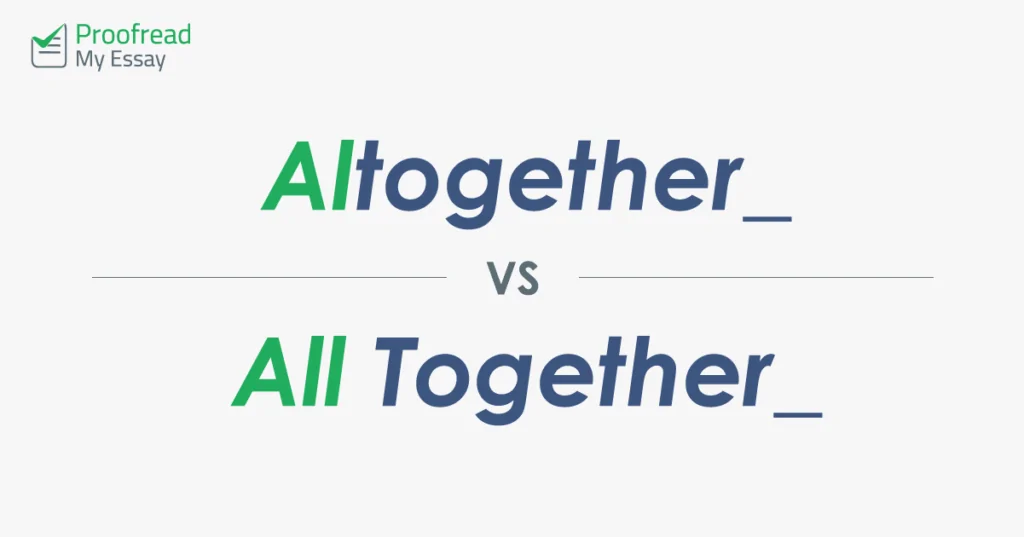The word ‘altogether’ sounds the same as ‘all together’, so are these just different ways of saying the same thing (like with ‘alright’ and ‘all right’)?
Not exactly. In this post, we explain why.
Altogether (Completely or Totally)
‘Altogether’ does come from ‘all together’ originally, but when used as a single word it now has a specific meaning. In modern English, ‘altogether’ is an adverb meaning ‘totally’ or ‘completely’. It can be used in a sentence like this:
I stopped drinking altogether when I turned thirty.
Similarly, it can mean ‘as a whole’ or ‘taking everything into consideration’:
Altogether, it was a good day at the beach.
A rather different usage is as part of the phrase ‘in the altogether’, which means ‘naked’. Presumably this is because nudity leaves you ‘altogether’ without clothes.

All Together (All in One Place)
The two-word phrase ‘all together’ often means ‘all here’ or ‘all in one place’:
I love it when my family are all together at Christmas.
It can also mean ‘all in unison’, such as in in the Farm song ‘All Together Now’. In this case, it is essentially asking everyone to join in with something.
Find this useful?
Subscribe to our newsletter and get writing tips from our editors straight to your inbox.

Most of the time, ‘all’ and ‘together’ won’t be side by side like this in a sentence. However, even when these terms are separated the meaning is the same. For instance:
We all sang together during the concert.
We sang all together during the concert.
These both mean the same thing, but the first sentence is more standard in its construction.
Altogether or All Together?
Unlike ‘alright’ and ‘all right’ (where the former is an informal contraction of the latter, but they mean the same), ‘altogether’ and ‘all together’ have distinct meanings in modern English.
If you need an adverb that means ‘completely’ or ‘as a whole’, then the single-word ‘altogether’ is correct. Otherwise, you should write the two words ‘all’ and ‘together’ separately. Remember:
Altogether = Completely or as a whole
All together = All in one place or all in unison



